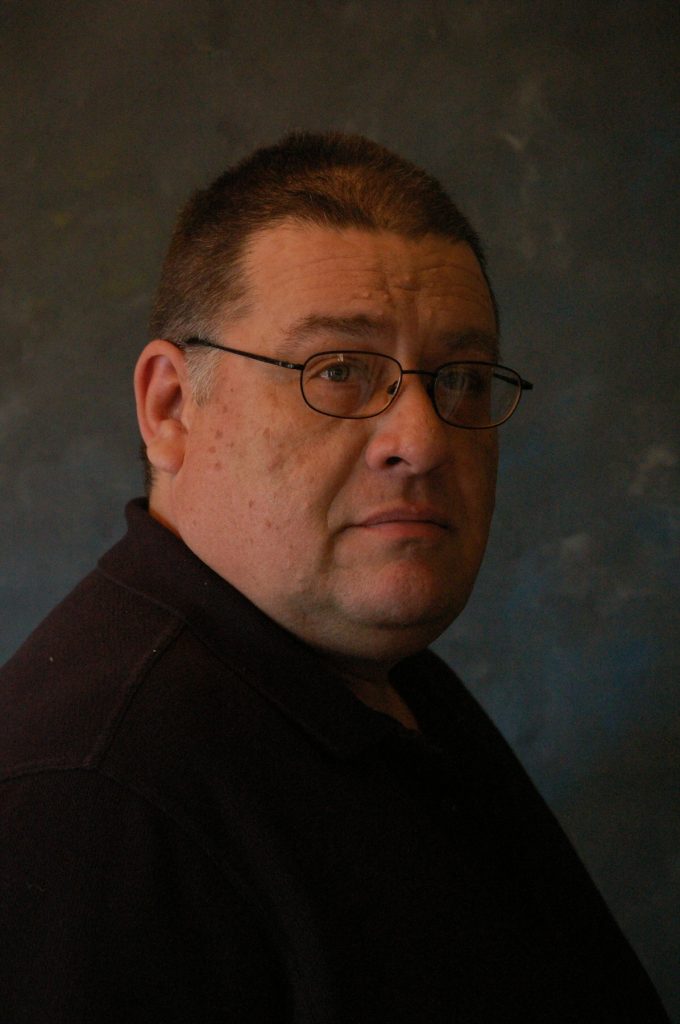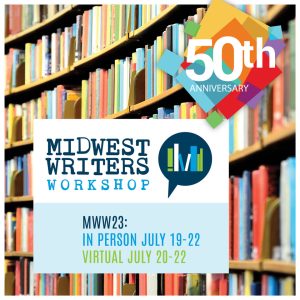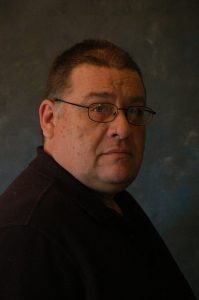 Matthew Clemens and his collaborator, Max Allan Collins, have penned 17 TV tie-in novels including CSI: Crime Scene Investigation, CSI: Miami, Dark Angel, Bones, and Criminal Minds. Wolfpack published the pair’s collected short stories in Murderlized: Stories. They have also authored the Reeder and Rogers thrillers: Supreme Justice, Fate of the Union, and Executive Order for Thomas & Mercer, as well as What Doesn’t Kill Her. They authored the J.C. Harrow mysteries: You Can’t Stop Me, and No One Will Hear You for Kensington, as well as the John Sand thrillers: Come Spy With Me, Live Fast, Spy Hard, and To Live and Spy In Berlin for Wolfpack. Those novels were collected in November, 2021 for the Wolfpack omnibus: No Time To Spy.
Matthew Clemens and his collaborator, Max Allan Collins, have penned 17 TV tie-in novels including CSI: Crime Scene Investigation, CSI: Miami, Dark Angel, Bones, and Criminal Minds. Wolfpack published the pair’s collected short stories in Murderlized: Stories. They have also authored the Reeder and Rogers thrillers: Supreme Justice, Fate of the Union, and Executive Order for Thomas & Mercer, as well as What Doesn’t Kill Her. They authored the J.C. Harrow mysteries: You Can’t Stop Me, and No One Will Hear You for Kensington, as well as the John Sand thrillers: Come Spy With Me, Live Fast, Spy Hard, and To Live and Spy In Berlin for Wolfpack. Those novels were collected in November, 2021 for the Wolfpack omnibus: No Time To Spy.Matthew will be teaching the session “Developmental Editing: Is There a Doctor in the House?” and is part of the manuscript evaluation team.
Q&A with Matthew
Matthew Clemens delivers a great interview. His responses are as cheeky as they are Spot. On. He has great advice here for big-picture editing as well as receiving feedback on your work. And the best way to arm yourself for the zombie apocalypse.
MWW: Tell me about the most significant change you’ve ever made in a project—I’m talking big overhaul. What made you do it, and what changed in you and in the project as a result?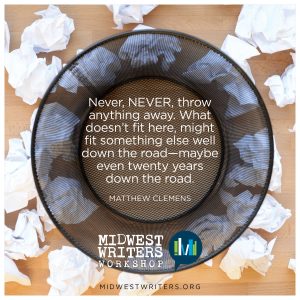
MC: This story is so odd it sounds apocryphal but it’s true. Around 2000 my partner, Max Allan Collins, and I were approached about writing “adult” fiction. Sexy stories where the characters only had sex with their husband/wife. Publishers were paying (on a good day) five to ten cents a word for short stories back then. This publisher offered us a dollar a word with a maximum of three thousand words. We sold them the idea of a pastiche of James Bond where the spy was married. The publisher bought two short stories and contracted us to write a novel about the couple, too.
I was five chapters into the first draft when the publisher, quite naturally, went bankrupt. That piece went into a drawer on my hard drive and sat untouched until the pandemic. In 2020 a new publisher wanted an anthology of short stories by us and the two John Sand shorts seemed perfect.
It was while we were putting together the anthology that Max and I started talking about this novel fragment. The new publisher, who was not of the “adult” fiction variety was interested in our take on the retired spy who served as the model for a character (James Bond) who was created by one of John Sand’s old war buddies (Ian Fleming).
We took out the sex (well, some of it) and turned it into a straight spy novel set in 1962. We finished that book and two more in the series over the next year.
The lesson? Never, NEVER, throw anything away. What doesn’t fit here, might fit something else well down the road – maybe even twenty years down the road.
MWW: You’re teaching an important session on developmental editing. What are some of the most common pitfalls you see writers make in their work?
MC: The inexperienced writer will frequently believe the sobriquet that is laid upon us: storyteller. It’s a word that both tells someone what we are and if we’re good, what we are not.
I do not tell stories. I show the reader a story through the eyes of the characters that inhabit it. Our bywords, the most important three words I can give to beginners are show don’t tell. Don’t tell me the woman screamed, bring her on stage and let her belt it out.
Beginners tend to use passive voice. He/she began to do something. If they are not interrupted, they just did it. He/she did something.
Learn to read like a writer. It takes practice, involves several steps, and we’ll be talking about reading like a writer in detail during our session.
Maybe the best advice I can give is stop trying so hard. A lot of beginners try to make every chapter perfect from the beginning. You can’t do it. I’ve been doing this professionally for thirty-one years, I can’t do it. If you’re busy and can’t make it, take this with you. Read your work aloud. Your ear is a better editor than your eye. If you have questions about this, try it. If you still have questions, ask me.
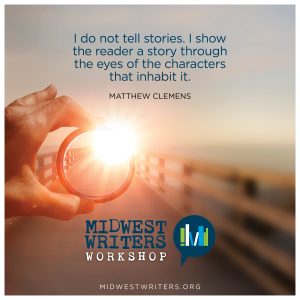 MWW: What’s a healthy way for writers to process and apply negative feedback—or not? How do you know what advice to follow?
MWW: What’s a healthy way for writers to process and apply negative feedback—or not? How do you know what advice to follow?
MC: Who is this feedback coming from? Consider the source. Feedback, all of it, good, bad, indifferent is like social media. What’s the source? Personally, I do not read reviews. The good ones always feel like they were written by my mom and the bad ones always feel like they were written by that guy who has always hated me. If you’re going to believe the good, you have to believe the bad.
Advice is different. Even when I was learning, I went to professionals. I tried to learn from teachers at places like MWW and other conferences. But just because my aunt reads a lot doesn’t mean she should give me publishing advice.
The bottom line on all this is that it’s your story, own it.
MWW: How has MWW figured in your writing career?
MC: I have been attending MWW on one side of the desk or the other since 1990. I have gone from willing student to published author to faculty member. The plainest way for me to answer this question is to say MWW is my home.
MWW: Your turn! What question do you wish that someone would ask you about writing, but nobody has? Write it out and answer it!
MC: The question I most frequently hear in my head is: How did you get past security?
The question I most frequently hear at conferences is: How do I get an agent?
The question no one ever asks is: How do I get better?
The answer is plant your ass in the chair and write.
MWW: Weapon of choice for the zombie apocalypse?
MC: Machete. Not only one of my favorite movies, it never runs out of ammunition.

